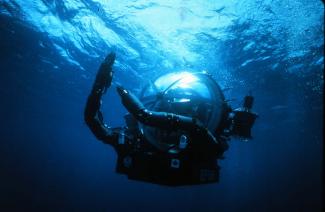Seven Rules for Science Based Fiction
Excerpt from an article I wrote for The Strand Magazine

Fiction with a scientific angle has seen a major renaissance in recent years, from The Martian to The Circle to apocalyptic novels like Wool. Movies such as Interstellar, Life, Avatar, and Arrival have captured the public’s imagination with their science-heavy themes. What’s going on here? Isn’t this the age of antiscience?
Remember Star Trek? In the sixties and seventies, the future of scientific advances seemed limitless. We were traveling to the moon, exceeding our earthly boundaries. Atomic power would give us unlimited energy and the ability to create flying cars, self-cooked meals, and robot servants like those imagined in the Jetsons cartoon.
But the seventies gave us a big dose of reality. Technology had promise, but it had problems, too. We had The China Syndrome and The Andromeda Strain and other apocalyptic visions of the future. Suddenly, the promise of technology seemed more like a threat, and people began to retreat into old-world ideas like spiritualism, paganism, and astrology.
We eventually moved out of that period into the Internet age, where technology once again ruled. It was exciting at first, with advancements including the Internet and the iPhone capturing our imaginations. It didn’t take long, however, for technology to lose its sense of wonder. Standing in line for the latest iPhone doesn’t seem as exciting as it once did. We’ve become overwhelmed and bored with technology, at least at the consumer level. Truly astounding technological advances like self-driving cars seem almost passé, but groundbreaking entrepreneurs like Elon Musk continue to remind us that technology can be both wondrous and awe-inspiring.
Enter the “new” science-based novel. Apocalyptic dystopias have dominated the fictional landscape lately, but we as a society can remain depressed for only so long. We hunger for inspiration and the promise of technology to solve our modern challenges. The success of The Martian may have been technical in nature, but its true theme centered on how we can use our creativity and inventiveness to get out of difficult situations. The Martian was basically “Robinson Crusoe on Mars,” and that’s a good thing.
To read the rest of this Article, head over to The Strand Magazine. And check out their other great articles!
Copyright 2017 by Kent Lester
